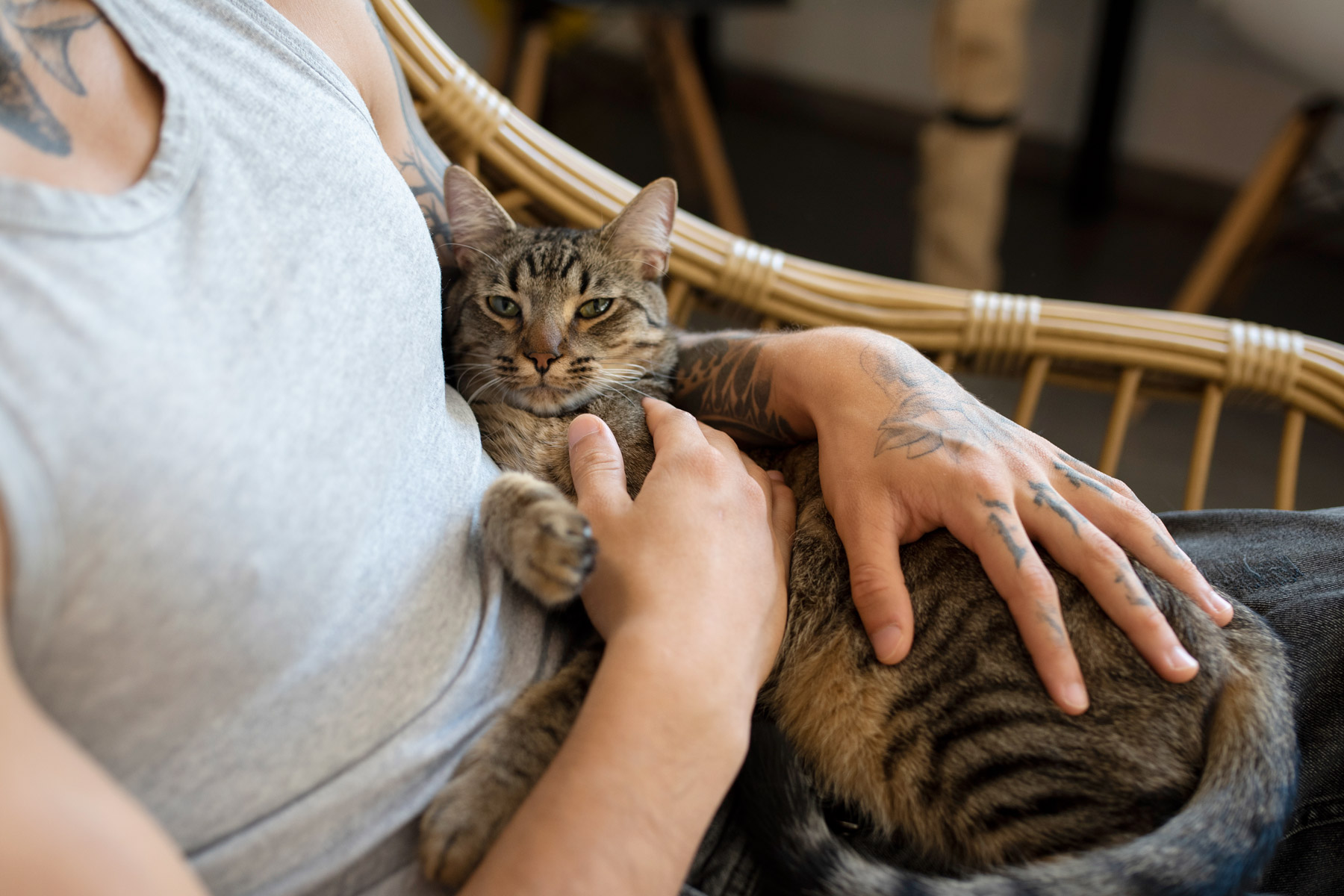Being a professional cat sitter is a fulfilling, busy, and rewarding career. While many people imagine it’s all about playing, cuddling, and feeding cats, the reality is far more nuanced. It’s a role that requires not only a deep love for animals but also understanding of their needs, exceptional time management, reliability, and the ability to build trust with their human owners.
More Than Just Cats: The Human Connection
As professional cat sitters, our passion for pets drives us, but the job isn’t just about cats – it’s also about people! Owners entrust us with their beloved pets, and clear communication is key to maintaining that trust. Being responsive and kind to clients’ requests while adjusting our communication style to suit different personalities helps build stronger relationships. Whether it’s providing detailed updates, answering questions, or addressing concerns, our professionalism ensures peace of mind for clients.
Setting the Standard: Going Beyond Basic Care
Professional cat sitters offer a higher standard of care compared to casual or hobbyist sitters. This includes personalized care plans tailored to each cat’s unique needs, handling special requirements such as administering medication or managing behavioural quirks, and providing detailed updates with photos and notes.
Some sitters also go beyond basic care by offering additional services like grooming, cat photography, or providing advice on cat well-being. These extras demonstrate our commitment to going above and beyond for both cats and their owners.
Understanding Cats’ Needs
Understanding cats’ needs is at the core of professional cat sitting. Each cat is unique, requiring careful attention to their physical, emotional, and behavioural needs. This involves:
- Observing their body language to gauge mood and comfort.
- Providing mental stimulation through play and enrichment activities.
- Respecting their boundaries while building trust over time.
-
Monitoring their health and ensuring they have a clean, stress-free environment.
By catering to these needs, we create a positive experience for every cat in our care.
The 5 Freedoms: A Professional’s Guiding Principles
To ensure the animals in our care are safe, happy, and healthy, professional cat sitters must adhere to the “5 Freedoms” of animal welfare. These key principles outline the minimum standard of care every pet professional should provide:
- The need for a suitable environment: Cats should be in clean, comfortable spaces that meet their physical and emotional needs.
- The need for a suitable diet: Providing appropriate food and fresh water, tailored to their specific dietary needs.
- The need to exhibit normal behaviour patterns: Encouraging natural behaviours like scratching, climbing, and play.
- The need to be housed with, or apart from, other animals: Respecting whether a cat thrives with or without companions.
- The need to be protected from pain, suffering, injury, and disease: Monitoring for signs of illness and seeking prompt veterinary care if needed.
These freedoms remind us that being a professional cat sitter is about more than meeting basic needs – it’s about supporting each cat’s overall well-being.
The Importance of Time Management and Reliability
Time management and reliability are critical in professional cat sitting. Missing a visit or arriving late can disrupt a cat’s routine and compromise their well-being. Scheduling visits efficiently, accounting for travel time (especially in challenging weather conditions), and staying organized ensures that every cat receives care at the scheduled time.
For sitters without a car, logistics become even more important. Whether it’s navigating public transport or braving the elements, the responsibility to provide safe and reliable care remains non-negotiable. As a sitter who relies on an e-bike, ensuring it is fully charged before visits is essential for maintaining reliability – and for ensuring you can get home, too! Additionally, keeping your phone charged is equally important for navigation, communication, and staying updated on schedules. These small yet crucial preparations ensure uninterrupted care, even in less than ideal circumstances.
The Challenges of Self-Employment
Many professional cat sitters are self-employed, which comes with its own set of challenges. Running your own business requires determination, adaptability, and a variety of skills beyond animal care. From managing bookings and marketing services to handling taxes and maintaining a professional image, there’s a lot to juggle.
If you’re considering this career path, ask yourself:
- Do you have a supportive network to lean on, or are you comfortable working independently?
- Are you business-savvy enough to manage finances, schedules, and customer relations?
- How strong is your knowledge of animal care and welfare?
Being a dedicated cat sitter also takes plenty of time and energy. Despite your love for cats, the sheer number of visits and responsibilities can be overwhelming. It’s not uncommon for sitters to feel exhausted from looking after multiple cats, especially those who offer overnight stays. While many cat sitters have their own feline companions, they may find it difficult to spend quality time with their own pets due to the demands of the job. Balancing personal and professional responsibilities becomes a constant challenge.
The Rewards of the Job
Despite the challenges, being a professional cat sitter is deeply rewarding. Knowing you’ve made a difference in the lives of both cats and their owners brings immense satisfaction. Whether it’s comforting a nervous kitten, administering medication to an elderly cat, or providing peace of mind to a worried owner, this role allows you to combine your love for animals with a meaningful career.
So, if you’re an animal lover with a knack for business, a commitment to reliability, and a desire to provide top-tier care, professional cat sitting might just be the perfect fit for you. It’s a career where your passion becomes your profession, and every purr feels like a “thank you.”

Billy, The Creative Cat Sitter



